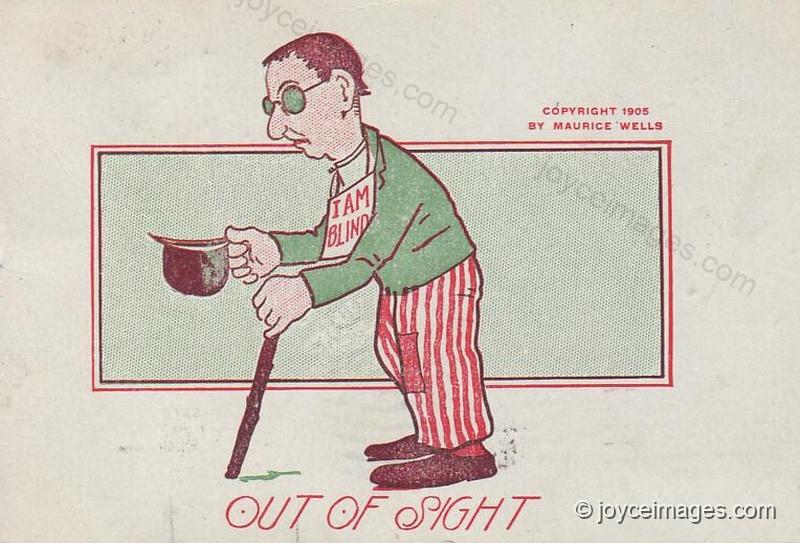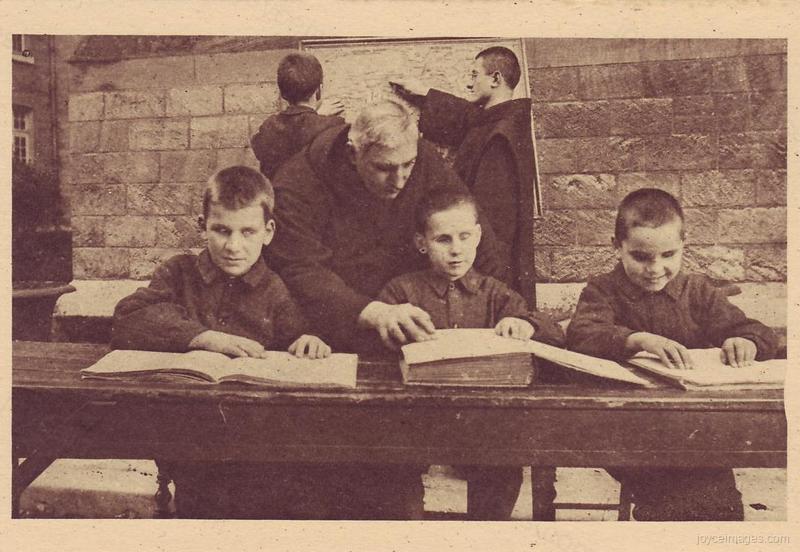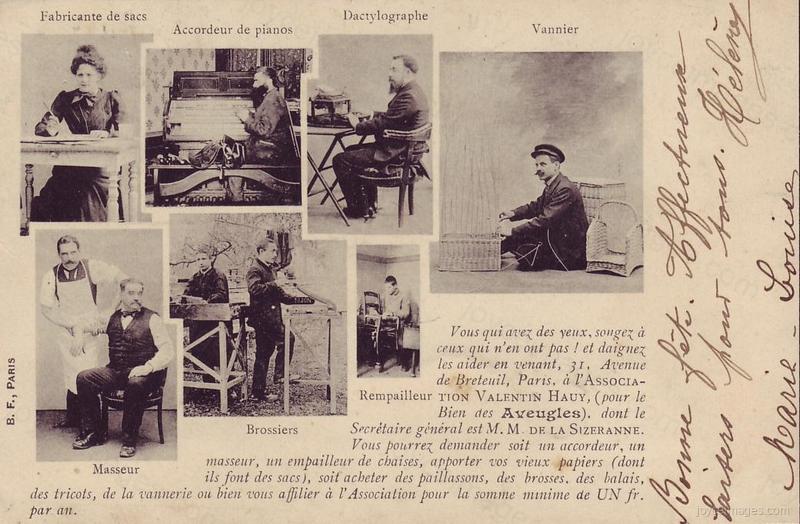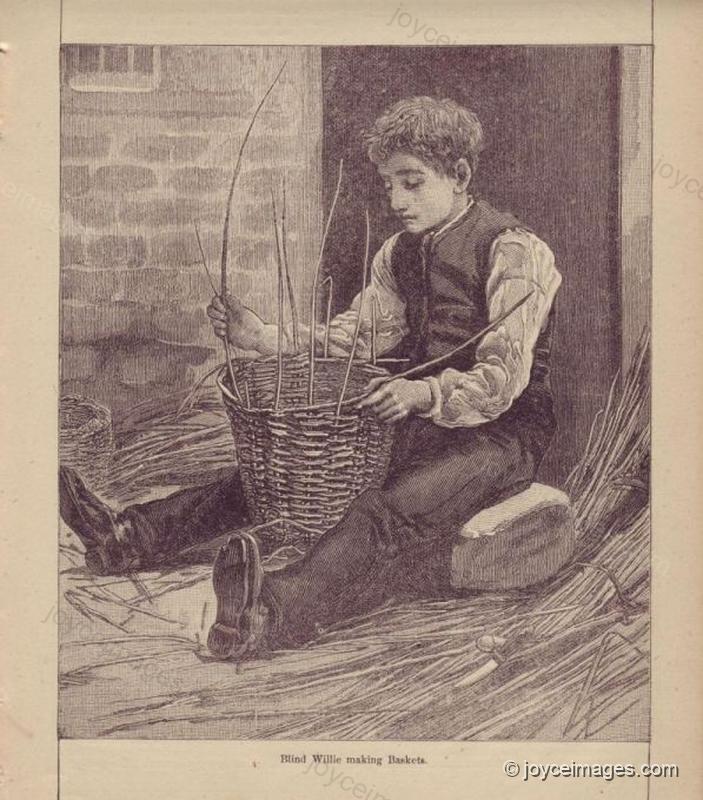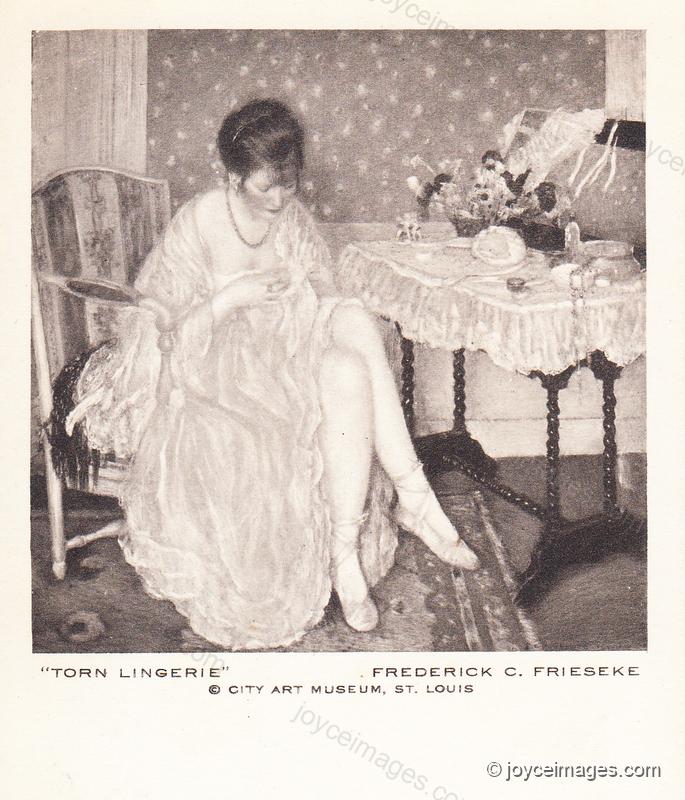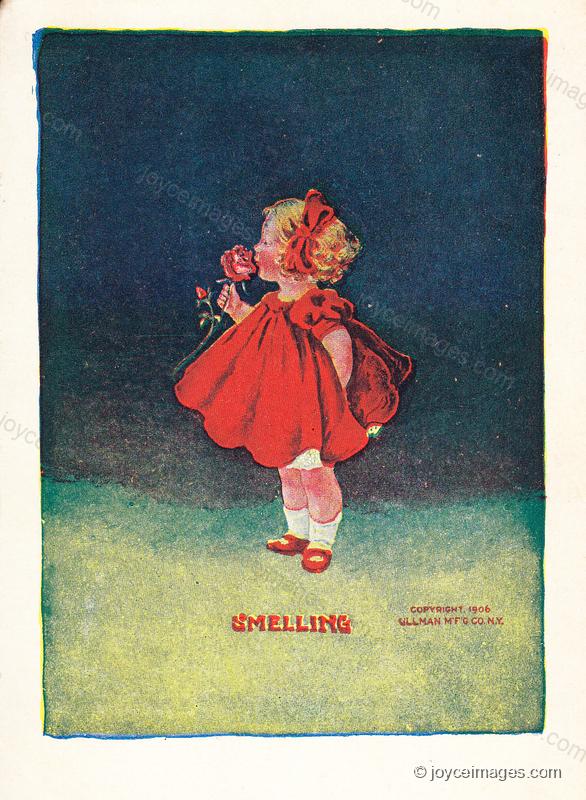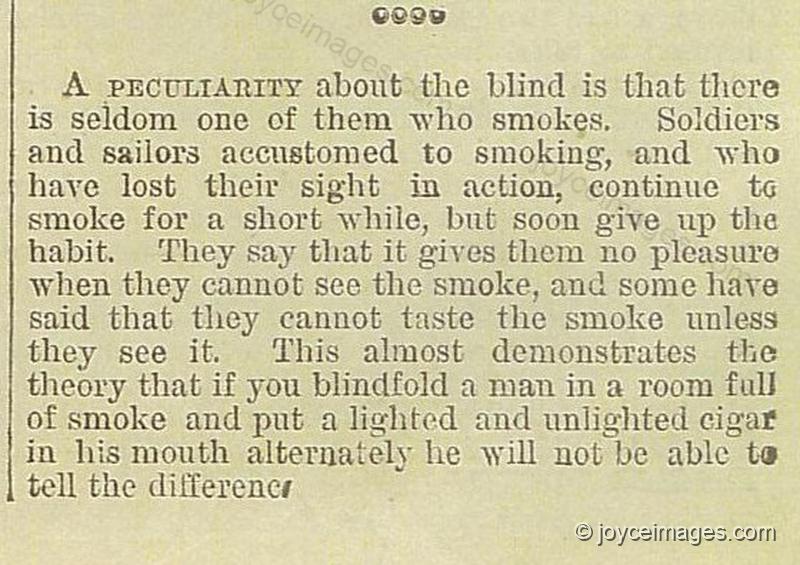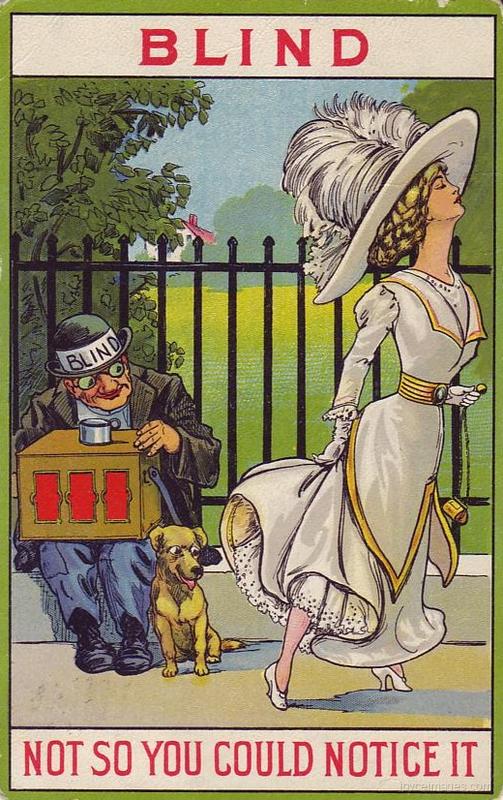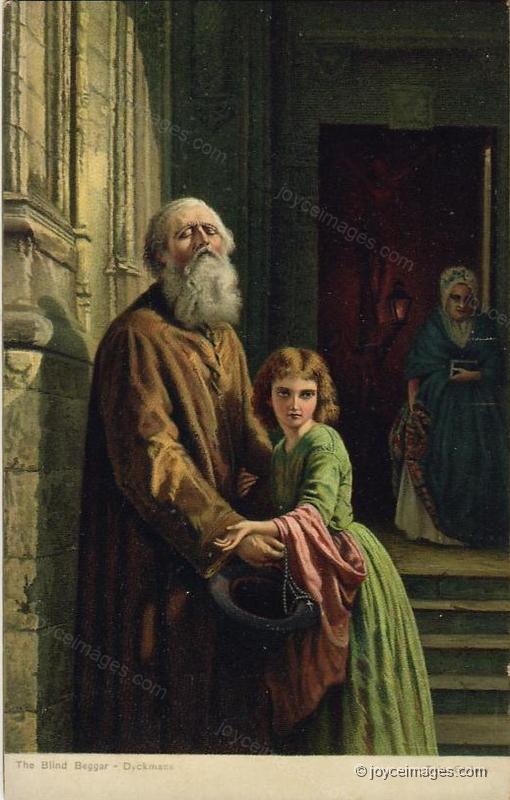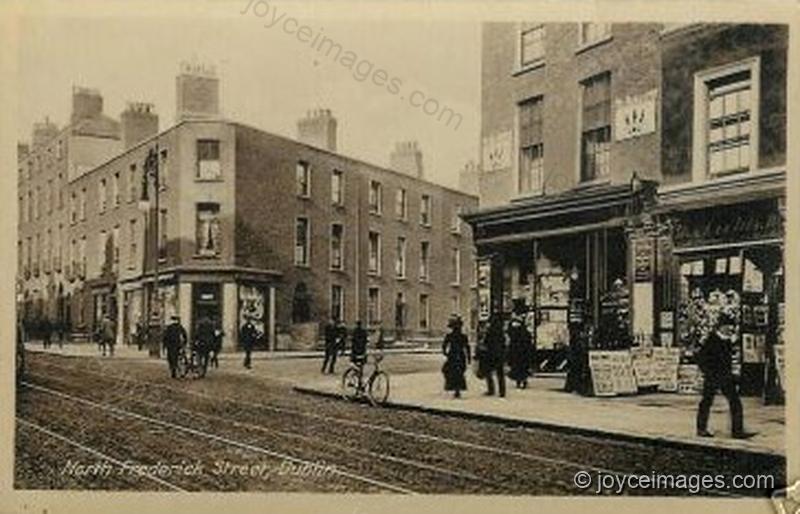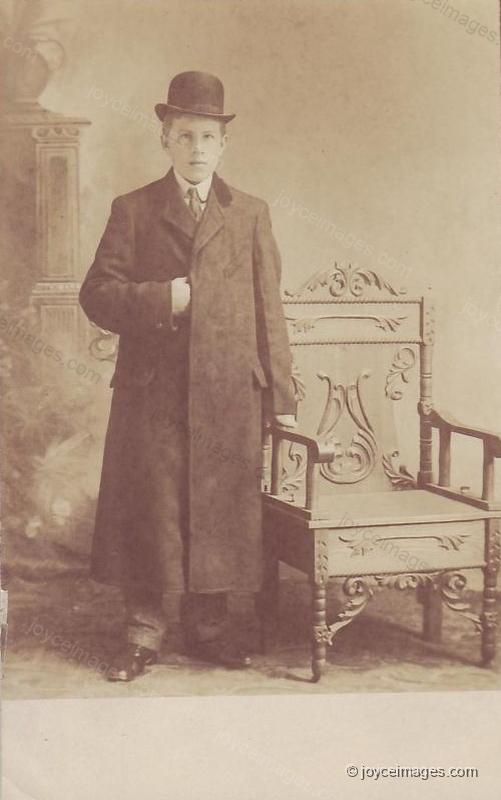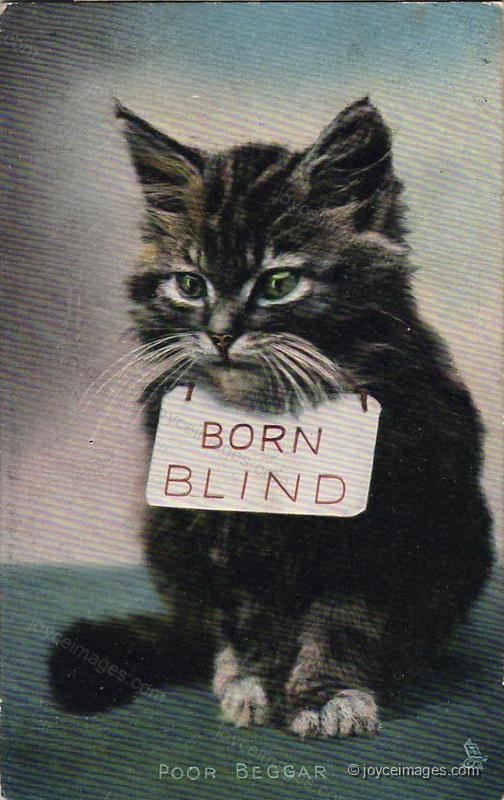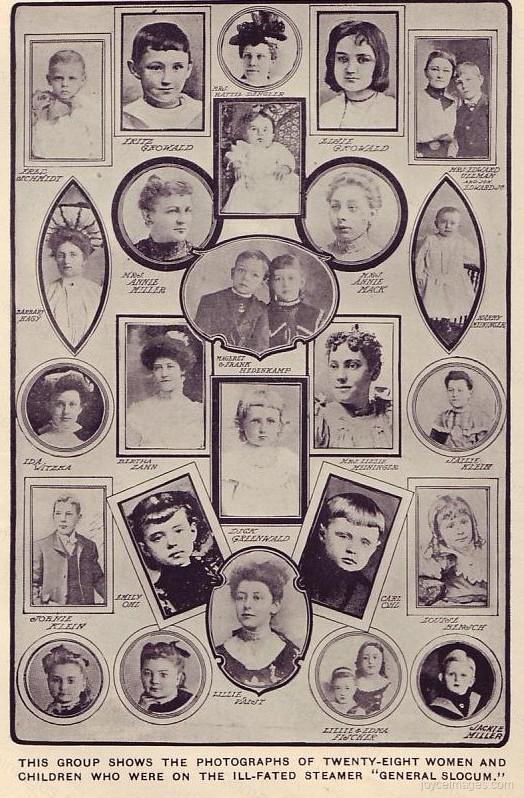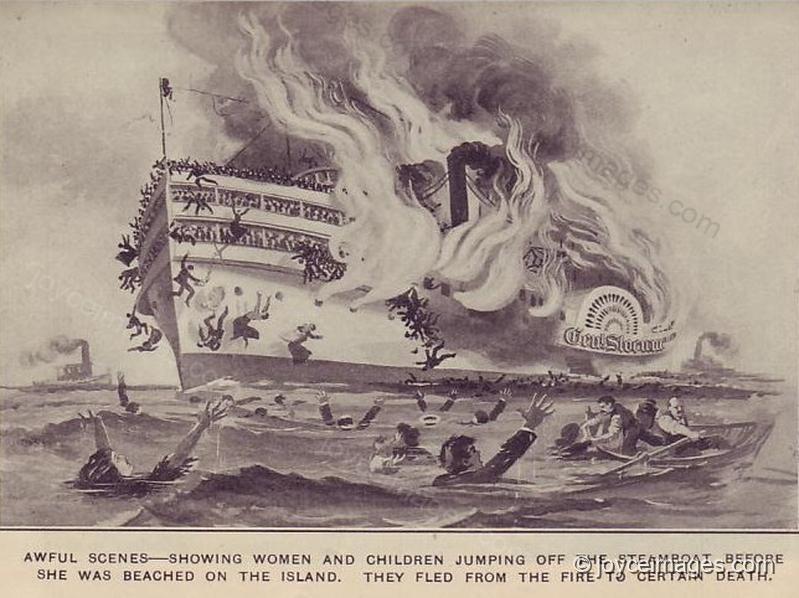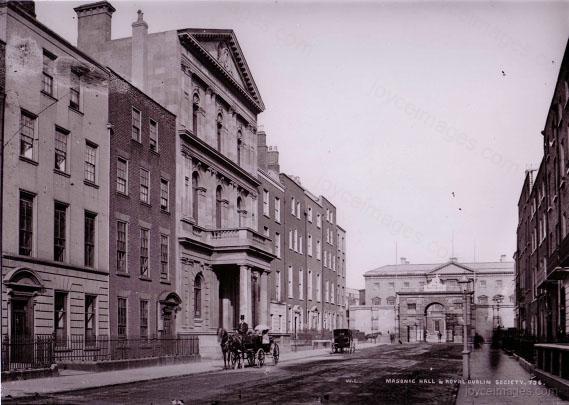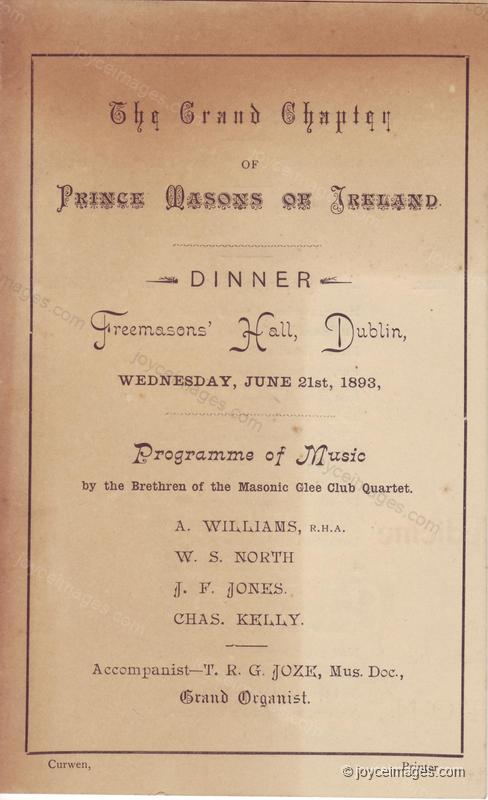"The blind stripling tapped the curbstone and went on his way, drawing his cane back, feeling again.
Mr Bloom walked behind the eyeless feet, a flatcut suit of herringbone tweed. Poor young fellow! How on earth did he know that van was there? Must have felt it. See things in their forehead perhaps: kind of sense of volume. Weight or size of it, something blacker than the dark. Wonder would he feel it if something was removed? Feel a gap. Queer idea of Dublin he must have, tapping his way round by the stones. Could he walk in a beeline if he hadn't that cane? Bloodless pious face like a fellow going in to be a priest.
Penrose! That was that chap's name." (U8.1104)
Mr Bloom walked behind the eyeless feet, a flatcut suit of herringbone tweed. Poor young fellow! How on earth did he know that van was there? Must have felt it. See things in their forehead perhaps: kind of sense of volume. Weight or size of it, something blacker than the dark. Wonder would he feel it if something was removed? Feel a gap. Queer idea of Dublin he must have, tapping his way round by the stones. Could he walk in a beeline if he hadn't that cane? Bloodless pious face like a fellow going in to be a priest.
Penrose! That was that chap's name." (U8.1104)
"Tune pianos. Or we are surprised they have any brains. Why we think a deformed person or a hunchback clever if he says something we might say. Of course the other senses are more. Embroider." (U8.1116)
A PC from the Association Valentin Hauy in Paris, for helping the blind. The secretary of the Association was M.M. De la Suzeranne, whose work Joyce probably read.
A PC from the Association Valentin Hauy in Paris, for helping the blind. The secretary of the Association was M.M. De la Suzeranne, whose work Joyce probably read.
"Plait baskets. People ought to help. Workbasket I could buy for Molly's birthday." (U8.1118)
An engraving (1886) showing Blind Willie making Baskets.
An engraving (1886) showing Blind Willie making Baskets.
"Sense of smell must be stronger too. Smells on all sides, bunched together. Each street different smell. Each person too. Then the spring, the summer: smells." (U8.1121)
"Tastes? They say you can't taste wines with your eyes shut or a cold in the head. Also smoke in the dark they say get no pleasure." (U8.1123)
An item from Titbits (1890) seems to confirm Bloom's belief. Or may be that's where he read it?
An item from Titbits (1890) seems to confirm Bloom's belief. Or may be that's where he read it?
"And with a woman, for instance. More shameless not seeing. That girl passing the Stewart institution, head in the air. Look at me. I have them all on. Must be strange not to see her. Kind of a form in his mind's eye." (U8.1125)
"The voice, temperature when he touches her with fingers must almost see the lines, the curves. His hands on her hair, for instance. Say it was black, for instance. Good. We call it black. Then passing over her white skin. Different feel perhaps. Feeling of white.
Postoffice. Must answer. Fag today. Send her a postal order two shillings, half a crown. Accept my little present. Stationer's just here too. Wait. Think over it." (U8.1127)
Postoffice. Must answer. Fag today. Send her a postal order two shillings, half a crown. Accept my little present. Stationer's just here too. Wait. Think over it." (U8.1127)
"With a gentle finger he felt ever so slowly the hair combed back above his ears. Again. Fibres of fine fine straw. Then gently his finger felt the skin of his right cheek. Downy hair there too. Not smooth enough. The belly is the smoothest. No-one about. There he goes into Frederick street. Perhaps to Levenston's dancing academy piano. Might be settling my braces." (U8.1135)
"Walking by Doran's public house he slid his hand between waistcoat and trousers and, pulling aside his shirt gently, felt a slack fold of his belly. But I know it's whiteyellow. Want to try in the dark to see.
He withdrew his hand and pulled his dress to." (U8.1140)
He withdrew his hand and pulled his dress to." (U8.1140)
"Poor fellow! Quite a boy. Terrible. Really terrible. What dreams would he have, not seeing? Life a dream for him. Where is the justice being born that way?" (U8.1144)
"Holocaust. Karma they call that transmigration for sins you did in a past life the reincarnation met him pikehoses. Dear, dear, dear. Pity of course: but somehow you can't cotton on to them someway." (U8.1147)
"Sir Frederick Falkiner going into the freemasons' hall. Solemn as Troy. After his good lunch in Earlsfort terrace." (U8.1151)
(Image courtesy of the ZJJF)
(Image courtesy of the ZJJF)
